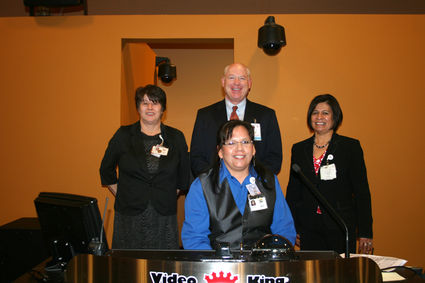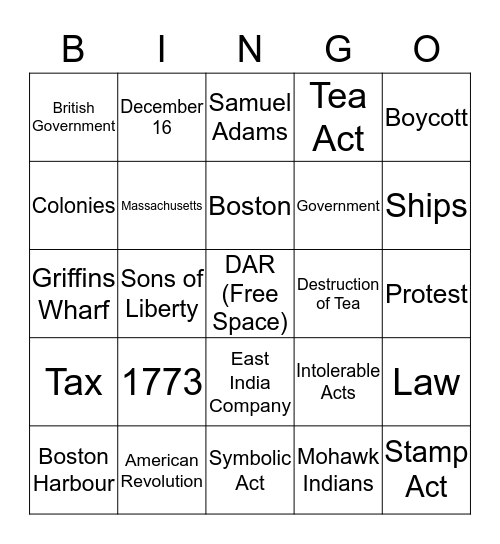Bingo Mohawk

Bingo Mohawk Calendrier
FREQUENTLY ASKED QUESTIONS |
| 1. Why can Indians conduct gambling activities? 2. What is a Federally recognized tribe? 3. What does tribal sovereignty mean to Indians? 4. Why are Indians sometimes referred to as Native Americans? 5. How many tribes are there in New York State? 6. How many Tribes have gaming in New York State? 7. What is New York State’s role at Indian casinos? 8. Who regulates Class III Indian Casinos? 9. Who regulates Class II Indian bingo? 10. How does a company do business with the casino? 11. How does a person obtain employment at Indian casinos? 12. Why aren’t Indian casinos taxed? 13. Can Indian casinos serve alcoholic beverages? |
| 1. Why can Indians conduct gambling activities? Indian land is not under State law unless a Federal law places it under State law. The Supreme Court held that even if a tribe is under State law the State gaming regulations do not apply on Indian trust land. In 1988 Congress passed the Indian Gaming Regulatory Act permitting federally recognized Indian tribes the ability to conduct gaming activities under certain circumstances. This law allows traditional Indian gaming, bingo, pull tabs, lotto, punch boards, tip jars, and certain card games on tribal land. However, it requires a Tribal/State compact for all other forms of gaming. The Tribe may regulate traditional forms of Indian gaming by itself. Bingo, pull tabs, lotto, punch boards, tip jars, and certain card games are regulated by the Tribe in conjunction with the National Indian Gaming Commission, although tribes, under certain circumstances, may self-regulate these activities. All other forms of tribal gaming are subject to regulation as determined and defined by State-Tribal gaming compacts. The National Indian Gaming Commission was established by Congress to develop regulations for Indian gaming. For more information contact the National Indian Gaming Commission, 9th., Floor, 1441 L Street, NW, Washington, DC 20005 (202) 632-7003. Updated information can be found at http://www.nigc.gov. 2. What is a Federally recognized tribe?There are about 566 federally recognized Tribes in the United States. 'Federally recognized' means these tribes and groups have a special, legal relationship with the United States government. This relationship is referred to as a government-to-government relationship. A number of Indian Tribes and groups in the United States do not have a federally recognized status, although some are state recognized. This means they have no relations with the federal Bureau of Indian Affairs (BIA) or the programs it operates. A special program of the BIA, however, works with those groups seeking federal recognition status. 3. What does tribal sovereignty mean to Indians? When Indian tribes first encountered Europeans, they were dealt with because of their strength in numbers and were treated as sovereign governments with whom treaties were made. When tribes gave up their lands to the United States, they retained certain sovereignty over the lands they kept. While such sovereignty is limited today, it is nevertheless jealously guarded by the tribes against encroachments by other sovereign entities such as states. Tribes enjoy a direct government-to-government relationship with the United States government wherein no decisions about their lands and people are made without their consent. The term, 'Native American,' came into usage in the 1960's to denote the groups served by the Bureau of Indian Affairs: American Indians and Alaska Native (Indians, Eskimos and Aleuts of Alaska). Later the term also included Native Hawaiians and Pacific Islanders in some Federal programs. It, therefore, came into disfavor among some Indian groups. The preferred term is 'American Indian.' The Eskimos and Aleuts in Alaska are two culturally distinct groups and are sensitive about being included under the 'Indian' designation. They prefer, 'Alaska Native.' There are eight federally recognized Indian tribes in New York State. They are:
Additionally the Unkechauge Nation of Poospatuck Indians tribe on Long Island has state but not federal recognition. This tribe has a government-to government relationship with the State of New York but not with the United States. As a matter of policy, the State of New York does not grant recognition to or enter into government-to-government relationships with Indian nations that are not federally recognized. The Poospatuck relationship with the State of New York was cultivated in colonial times when on July 2, 1700 the Poospatuck received a deed of land from William Tangier Smith. The State continued to treat the group as an Indian tribe after the American Revolution. Before this tribe could open any form of gambling establishments under the federal Indian Gaming Regulatory Act they would first have to obtain recognition by the federal Department of Interior. 6. How many Tribes have gaming in New York State?Only three tribes have lawful gaming: The Seneca Nation of Indians operate the Class III Seneca Niagara Casino in Niagara Falls, the Class III Seneca Allegany Casino, the Class III Seneca Buffalo Casino in Buffalo, and Class II bingo on both their Cattaraugus and Allegany Reservation lands; the St. Regis Mohawks operate the Class II Mohawk Bingo Palace and the Class III Akwesasne Mohawk Casino, which also houses Class II poker games; and the Oneida Indian Nation of New York operates the Turning Stone Casino, which houses both Class II bingo and poker, as well as its Class III gaming operations. The State maintains a constant twenty-four hour presence within the gaming facilities of the five Class III facilities to maintain the integrity of all activities conducted in regard to Class III gaming, and to insure the fair and honest operation of such gaming activities. Additionally, the State conducts background investigations on all employees of the casino and enterprises who conduct gaming related business with the casino to ensure their suitability. Pursuant to each Compact the State jointly regulates Class III gaming facilities with a Nation or Tribal Gaming Agency, respectively. Class II gaming activities, e.g., bingo, pull tabs, lotto, punch boards, tip jars, and certain card games, are regulated by the Tribe in conjunction with the National Indian Gaming Commission, although tribes, under certain circumstances, may self-regulate these activities. Any company wishing to provide services, supplies or equipment to a Class III gaming operation must be registered by the State of New York Gaming Commission. This process begins by the Nation or Tribal Gaming Agency receiving applications and forwarding such to the New York State Gaming Commission, who will review the application and identify principals required to file individual applications. Upon receipt of all required paperwork the Commission will make a determination whether to temporarily register the company pending a background investigation conducted by the New York State Police Casino Detail. If any individuals or businesses seek to provide services, supplies or equipment to the casinos, they should contact: Oneida Indian Nation Gaming Commission St. Regis Mohawk Tribal Gaming Commission Seneca Gaming Authority All tribal gaming compacts require that prior to employment a person must be issued a temporary certification by the State Gaming Commission and a temporary license by the applicable Nation or Tribal Gaming Agency. Individuals must first contact the tribal gaming agency to obtain employment prior to filing an application with the Gaming Commission. It should be noted that every gaming employee will be required to undergo both New York State and Federal Bureau of Investigation criminal history fingerprint profiles and a full background investigation conducted by the New York State Police. 12. Why aren't Indian casinos taxed? States are limited by federal law on the monies they are authorized to receive from Indian tribe's Class III gaming operations. Section 2710 (d)(4) of the Indian Gaming Regulatory Act states: Except for any assessments that may be agreed to under paragraph (3)(C)(iii) of this subsection, nothing in this section shall be interpreted as conferring upon a State or any of its political subdivisions authority to impose any tax, fee, charge, or other assessment upon an Indian tribe or upon any other person or entity authorized by an Indian tribe to engage in a class III activity. No State may refuse to enter into the negotiations described in paragraph (3)(A) based upon the lack of authority in such State, or its political subdivisions, to impose such a tax, fee, charge, or other assessment. Additionally, the Indian Gaming Regulatory Act limits how each tribe may expend the revenues they derive from gaming operations. Pursuant to § 2710 (b)(2), the Chairman of the National Indian Gaming Commission may not approve any tribal ordinances or resolution for the conduct of Class II gaming if net revenues from the tribal gaming are to be used for purposes other than to:
Yes, provided that the nation or tribe has obtained a license to do so issued by the New York State Liquor Authority and complies with all State laws, rules and regulations regarding alcoholic beverage provision. As of October 31, 2012, all Indian casinos with the exception of the Seneca Buffalo Creek Casino currently have licenses to sell alcoholic beverages. |



Absolutely, there's a plentiful amount of bites and beverages provided at Mohawk Bingo Palace Bingo Hall. Does Mohawk Bingo Palace Bingo Hall have progressive jackpot games? Sure thing, it wouldn't be bingo in Hogansburg without a fantastic progressive jackpot. Is smoking allowed at Mohawk Bingo Palace Bingo Hall? K1037 Radio Bingo broadcast airs on CKRK K103.7 FM every Friday @ 7:30 PM (unless otherwise specified) Bingo Boutique Hours. Monday: 9:00 a.m.
Akwesasne Mohawk Casino Bingo Schedule
In May 2013 the Akwesasne Mohawk Casino completed a new $74 million expansion that included a 7-story hotel and a new bingo hall. The original Mohawk Bingo Palace was located down State Route 37 and operated since May 1985. That facility was closed and relocated inside the Akwesasne Mohawk Casino. The grand opening was March 13, 2013. Mohawk Bingo, stars and strikes poker dallas ga, angel of the winds casino buffet menu price, blackjack americano online.



